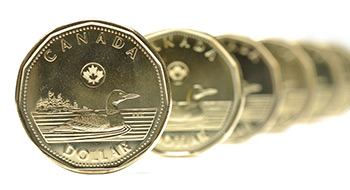

The Conservative decade is over.
The Liberals won all 33 seats in Atlantic Canada, and 184 overall, with 170 needed for a majority. Stephen Harper conceded to Justin Trudeau just after midnight, and Conservative Finance Minister Joe Oliver failed to win re-election in his riding of Eglinton-Lawrence.
What does the red wave mean?
Read: Hands off my TFSA contribution room!
From a macro perspective, “Elections rarely impact the economy, and there’s no evidence that [the type of] government influences the capital markets,” says Graham Westmacott, portfolio manager at PWL Capital in Waterloo, Ont. “From a big-picture point of view, there’s really nothing to stress about.”
As for taxes, the Liberals have promised to raise the tax rate for income above $200,000 to 33% from 29%. On a $250,000 income, this would mean paying up to $1,329.50 more. They would also lower the rate for income between $44,700 and $89,401 to 20.5% from 22%, for tax savings worth up to $670 a year per person.
Keith MacIntyre, national tax practice leader at Grant Thornton LLP, says advisors should tell business owners to review their compensation plans for 2015 in light of the four percentage-point tax rate increase.
It’ll probably take effect in 2016 since it’s unlikely the government will pass a budget before the end of the year, he says. So if clients have corporate structures, they should consider withdrawing higher salaries and/or bonuses this year.
TFSA rollback
Trudeau said his party would roll back the current $10,000 in annual TFSA room to $5,500. Westmacott isn’t too concerned with the $4,500 change.
Assuming a 5% return and 30% tax, he says, you’re looking at a difference of less than $70 in actual savings. “No one’s going to be retiring a year later or selling a yacht based on the TFSA change,” he quips.
Read: Politics could shrink TFSA contribution room
MacIntyre agrees. “This is going to lower a saving source, but it isn’t a significant one,” he says. “Prudent advisors will find other ways.”
While it’s unlikely that the Liberals will make the $5,500 contribution limit retroactive to 2015, MacIntyre says that if they do, “there is no tax on withdrawal. People aren’t going to face any tax burden for it.” In that event, he suggests withdrawing investments with gains, since losses within a TFSA cannot be applied against regular capital gains.
Other tax measures
MacIntyre says corporate executives should pay attention to what the government does with employee stock options, which it’s promised to tax fully. (There’s currently a 50% deduction on stock option income.) “Businesses will probably wait for the budget.”
Businesses are also interested to see if the small business deduction changes under a Trudeau regime. MacIntyre says the Canadian Chamber of Commerce is looking for an increase to $1 million from $500,000, which could net CCPCs $70,000 per year. He’s hopeful: “Liberals have said they support tax incentives for small businesses,” he says.
Read: Canadians confused about TFSAs
Westmacott was surprised to see that the Liberal platform included keeping the Labour Sponsored Venture Capital Corporation (LSVCC) tax credit. “We don’t like tax-driven investments, and LSVCCs have historically posted negative returns on a pre-tax basis,” he says, adding that they’re also usually illiquid. “To put clients into investments based on the initial sugar high of tax breaks and then be left with underperforming assets is not a strategy we would support.”
Political risk
Westmacott says these potential policy changes highlight the political risk associated with any investment or tax planning. “Investors should be wary of what any particular government chooses to give, [knowing that] the next government can take it away.” But, he points out, “Voters might get weary of the giving and taking of successive governments.” He’d like to see “consistency and coherence” from elected officials going forward.
This story originally appeared on the site of our sister publication Advisor.
